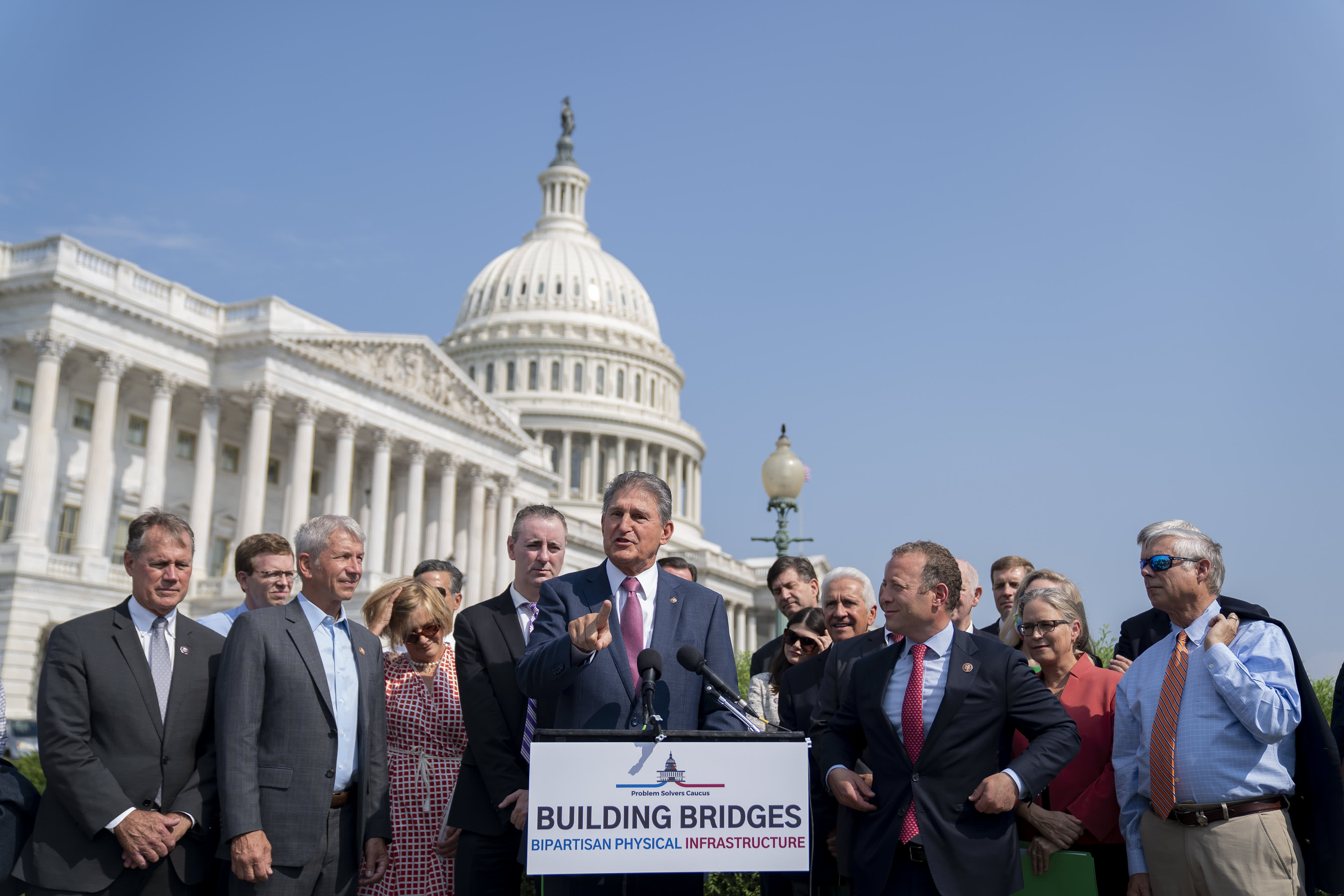
Senator Rob Portman, a Republican from Ohio, left, and Senator Kyrsten Sinema, a Democrat from Arizona, speak during a news conference in the Dirksen Senate Office Building in Washington, D.C., U.S., on Wednesday, July 28, 2021.
Stefani Reynolds | Bloomberg | Getty Images
The Senate voted Friday to move forward with a bipartisan infrastructure bill, as Majority Leader Chuck Schumer pushes to pass it as soon as next week.
The vote was delayed briefly as senators reportedly worked out an issue related to broadband. The final text of the legislation has yet to be released.
The procedural measure needed only a simple majority to pass. The final tally was 66 votes in favor, and 28 against.
The vote continued a scramble by Democrats to clinch two massive pieces of their economic agenda before the Senate leaves for its recess scheduled to start Aug. 9. The chamber could stay in session through the weekend to debate and amend the plan.
The measure would put $550 billion in new funds into transportation, power, water and broadband. While negotiators have outlined how much money would go into everything from roads to railways and electric vehicle charging stations, senators have not released final legislation.
Democrats aim to pass the bill along with a second, separate $3.5 trillion package that would include a bevy of other party priorities. The proposal could address child care, paid leave, tax credits for households and climate policy.
Schumer, D-N.Y., hopes to approve a budget resolution, a key step in getting the bill through Congress, before the Senate leaves for its recess. The vote would unlock the budget reconciliation process, which would allow Democrats to pass their plan without a Republican vote.
The bipartisan plan had more than enough GOP support to advance this week. Seventeen Republican senators including Minority Leader Mitch McConnell, R-Ky., voted to move forward with it Wednesday. They joined all 50 Democrats.
Senator Joe Manchin, a Democrat from West Virginia, center, speaks during a news conference with the House Problem Solvers Caucus outside the U.S. Capitol in Washington, D.C., U.S., on Friday, July 30, 2021.
Stefani Reynolds | Bloomberg | Getty Images
Their support for the procedural motion does not mean they will back the final bill. It will need 60 votes to get through the Senate.
With their two-pronged strategy, Democratic leaders hope to appease both wings of their party. Centrists wanted to strike a bipartisan infrastructure deal, while progressives aimed to expand the social safety net and better prepare the country to fight climate change.
The party has to navigate an evenly split Senate and a narrow majority in the House to pass both bills. One defection would sink the Democratic bill in the Senate.
Senators including Kyrsten Sinema, D-Ariz., have signaled they will vote to pass the budget resolution but try to trim their party’s $3.5 trillion price tag for the reconciliation bill. House progressives have raised concerns the plan will not be robust enough.
UPDATE: This post has been updated to reflect the outcome of the Senate vote.




